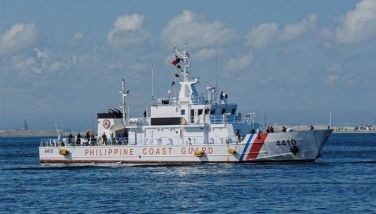‘Casinos weak link vs laundering’
MANILA, Philippines - The casino industry is a weak link in the Philippines’ effort to stop money laundering and terror financing, the US State Department’s International Narcotics Control Strategy Report said.
“International experts and observers note that the Philippine casino industry is a weak link in the country’s AML/CFT regime,” the annual report said. AML/CFT stands for Anti-Money Laundering and Countering Financing of Terrorism.
The Anti-Money Laundering Council (AMLC) is pushing for amendments to the Anti-Money Laundering Act (AMLA) to include casinos.
But the report said progress has been slow as national elections near and as lobbying from the casino industry intensifies.
“Considering unsuccessful attempts in the past, the inclusion of casinos under the Philippines’ AML/CFT regime may not occur absent sustained international pressure,” the report said.
“The government should include casinos and other forms of gaming in its AMLA,” it added.
The Philippine Amusement and Gaming Corporation (PAGCOR), a government-owned entity, issues licenses to operators and regulates the rapidly expanding Philippine gaming industry.
PAGCOR uniquely operates its own casinos in addition to serving as the industry’s overseer. PAGCOR reported gross revenues equivalent to about $920 million for calendar year 2014.
According to the report, regionally, organized crime groups such as Chinese triads have infiltrated casino operations and have facilitated prostitution, narcotics trafficking, loan-sharking and suspect junket and VIP gaming tours.
Finance center
The report also said “money laundering is a serious concern due to the Philippines’ international narcotics trade, high degree of corruption among government officials, trafficking in persons and the high volume of remittances from Filipinos living abroad.”
The Philippines, the report said, is integrated into the international financial system but is not a regional financial center.
“The Philippines is increasingly becoming an important financial player in Asia, with an economy growing steadily at six percent annually,” it said.
The Philippines, the report added, faces challenges from sophisticated transnational drug trafficking organizations, such as the “Hong Kong triads,” which use the Philippines as a drug transit country for cocaine and methamphetamine.
These groups, the report said, use the Philippine banking system, commercial enterprises and particularly casinos to transfer drug proceeds from the Philippines to offshore accounts.
Other transnational criminal organizations, including groups based in Africa, are expanding their presence throughout East Asia and will likely continue to exploit the Philippine financial system to launder and transfer drug trafficking proceeds.
Insurgent groups in Mindanao engage in money laundering through ties to organized crime, deriving funding from kidnapping for ransom and arms trafficking, and potentially narcotics.
Despite progress, the report said the law enforcers’ capability to successfully prosecute high-volume drug traffickers remains hampered, due to the inability to use “judicially authorized interception” of criminal communications, limited use of plea bargaining and an inefficient drug asset forfeiture system, according to the US report.
“Many drug-related cases are dismissed for failure to follow the strict evidentiary procedures in the Comprehensive Dangerous Drugs Act of 2002. Reforms to the law remain pending. Prosecution and adjudication of drug-related cases continue to face significant procedural delays,” the report said.
The report indicated that the high volume of formal and informal remittances from overseas Filipinos provides a channel for money laundering.
Cash remittances from the more than 10 million Filipinos working or residing abroad represent eight to nine percent of the gross domestic product (GDP) of the Philippines.
Improvements in the financial services industry have enabled banks and official money remittance centers to capture approximately 90 percent of the remittances sent by Filipinos abroad.
Smuggling
The report said smuggling thrives in some regulated economic zones. The Philippine Economic Zone Authority (PEZA) regulates about 326 economic zones throughout the country.
“The PEZA economic zones are well regulated; however, smuggling is a concern for the locally regulated zones,” the report said.
Local governmental units, the government-owned Bases Conversion Development Authority and the Subic Bay Metropolitan Authority regulate a handful of other zones.
The report also said “under-invoicing or undervaluation of imports” is also a significant problem in the Philippines.
“Recently, there also have been instances of over-valuation of imports in the Philippines.”
According to Global Financial Integrity, the Philippines ranked eighth among countries with high illicit outflows primarily due to abusive trade “mis-invoicing,” a form of trade-based money laundering (TBML).
The report also cited a 2015 survey showing the Bureau of Customs (BOC) as an agency with major corruption issues.
“Corruption undoubtedly enables some fraudulent trading practices. The Philippines has a new Trade Transparency Unit (TTU) that uses data and analytics to spot anomalies in trade that could be used to trigger TBML investigations,” the report said.
The BOC remains a paper-driven organization and the lack of automation for import transactions continues to foster an organization rife with corruption, the report stated.
“…Customs brokers operate within the seaport facility with impunity,” it added.
“Change within the Bureau of Customs has been slow as there are underlying forces, both internal and external, to prevent any substantive changes.” – Christina Mendez
- Latest
- Trending





























